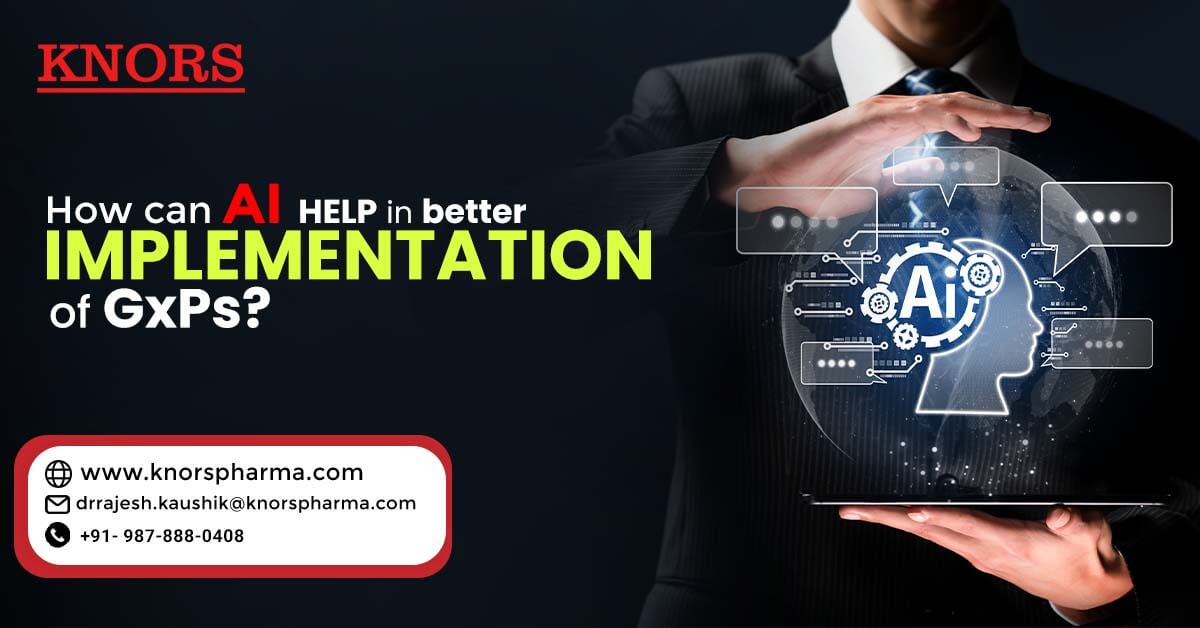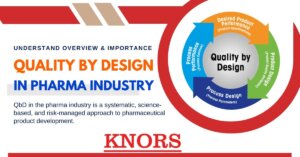GxPs are “Good Practices” of pharma that include GMP, GCP, GDP, GLP, etc. And they are a must-have for regulations, quality, and safety. The applications of AI in GxPs are transforming the approach of the pharma companies towards quality, productivity, and homogeneity. They control production, testing, distribution, and documentation from product design in the first place to the entire product life cycle. Their application requires accuracy, real-time monitoring, & ongoing improvement. Manual systems sometimes fail due to human mistakes, lag, or deviation.
That is where AI enters the picture. It reduces risk, improves data, and simplifies compliance. The pharmaceutical companies are already considering automation, analytics, and machine learning as the next step to gain more control. Big pharma’s risk and process integrity are redefined by AI, which also automates compliance.
Benefits of AI in GxPs System in Pharma Industry
Real-Time Monitoring: AI systems are constantly watching production and laboratory activity as it is being performed. The instant something crosses the safety limits, they provide a prompt warning.
Predictive Maintenance: AI forecasts equipment failure or quality deviations before they take place. Hence, AI avoids downtime & ensures productivity in GxP environments.
Automated Documentation: Smart platforms identify, capture, and remember compliance information in real-time. This reduces the amount of human intervention and ensures 100% traceability.
Data Integrity: AI in GxPs system prevents data manipulation, improves data quality, and warns of outliers. Hence, it improves compliance and audit readiness.
Workflow Optimization: AI avoids repetition from test to batch release. Moreover, it removes delays and manual interventions by automating GxP processes.
Regulatory Insights: Artificial intelligence technologies track global trends in regulations. Hence, artificial intelligence technologies help maintain current in-house SOPs based on changing standards.
Risk-Based Approaches: AI in GxPs system enables pharma companies to focus on what is most important from the beginning. It is more efficient with resources & provides more effective inspections.
Challenges & Considerations taken in the implementation of the GxPs System
- System Validation Complexity: It can be very difficult to test AI technologies in a lab. You’ve got to have it all straight and figure out the risk, so it’s worth involving some specialists.
- Integration with Legacy Systems: Much of the pharma sector possesses old infrastructure. It can take a long time to implement AI on current hardware or software.
- Data Security and Privacy: Pharma data is private. No matter how smart the AI program is, security is the problem. As a result, encryption and backup protocols must be put in place.
- Resistance to Change: Legacy system change-resistant employees resist the transition. They need to be trained so that transition and continuity can be successfully established.
- High Initial Cost: Advanced AI in GxPs system in pharma industry can require a huge investment at the start. However, it eventually leads to increased efficiency.
- Regulatory Uncertainty: Regulations lag behind the technology in AI. Hence, firms are required to exercise caution when utilising machine learning for regulated domains.
- Continuous Monitoring Needed: Even AI solutions are qualified. AI performance must be controlled by companies to maintain consistent results and GxP specifications.
What would be the Prospect of GxPs System in the Pharma Industry?
As regulatory bodies put pressure on companies to be more open, companies will go deeper into AI to comply. Batch releases of AI, RPA, and predictive analytics will revolutionise GxP procedures. AI solutions will be much smarter, making decisions in real-time & autonomously. Hence, we will be conducting regulatory audits on AI-powered dashboards. Monitoring of quality is moving from paper-based to digital-first. SOPs, data logs, and error reports will be automated by the firms in order to react faster.
In addition, AI in GxP compliance will reduce the risk of non-compliance with regulations to the absolute minimum. Compliance will no longer be reactive after an incident, but will be proactive. Pharma will no longer be bogged down by massive amounts of big data thanks to AI. With greater competition, only the technologically advanced GxP systems will reign supreme. Large pharma firms have already built centres of excellence for AI to make medicine delivery intelligent, compliant, and efficient.
The Bottom Line
The pharma business is changing rapidly with digital platforms. AI in GxPs is not a trend; it’s a necessity for long-term compliance and quality. Thus, AI offers quantifiable advantages in areas like risk avoidance and real-time monitoring. Knors Pharma is already seeing increased efficiency with AI deployment. Innovations and further regulation will seal the matrimony of AI and GxP systems as the pharma industry’s future. Those who will be transformed will be enjoying benefits with faster approvals, better audit reports, and global confidence.
Frequently Asked Questions
How does artificial intelligence in GxPs affect pharmaceutical practice?
It’s more about the use of AI technology to enhance, automate, and optimize GxP compliance processes in the pharma industry.
Can human decision-making be replaced by AI in GxP systems?
No, AI recommends based on data. Final judgment still relies on human experience, particularly in crucial or ethical areas.
Is AI implementation costly in GxP pharma companies?
High initial expense but saves operation and compliance expense in the long term, with a high return on investment.
What are examples of AI in GxP Compliance tasks?
Some examples are audit data analysis, batch reporting, predictive alerting & electronic quality document systems.




